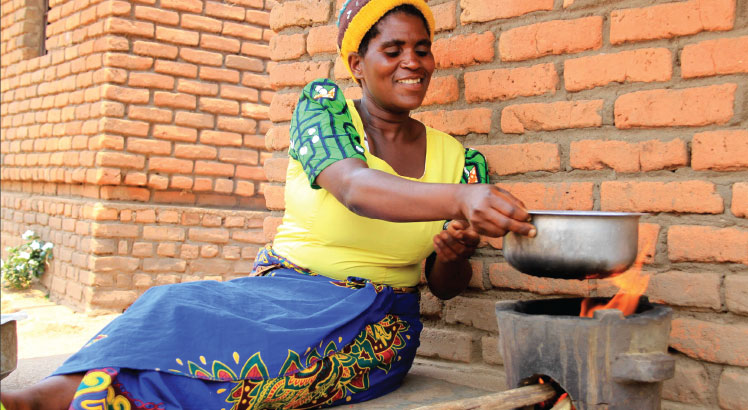Promoting clean cooking and closing the electricity access gap are both chief concerns for the international development and climate communities. But there has been too little appreciation of how each effort can be leveraged to support the other through more integrated planning strategies. Minister of Energy IBRAHIM MATOLA and Sustainable Energy for All (SE4All) chief executive officer DAMILOLA OGUNBIYI write:
Almost 2.4 billion people, one-third of the world’s population, cook with solid biomass, which has devastating consequences for their health and the environment.
The use of traditional cooking fuels costs about $2.4 trillion per year, owing to its health problems, lost productivity and climate-driven damages.
But with 733 million people still lacking access to any electricity, biomass fuels are often the only option.
It doesn’t have to be this way. Promoting clean cooking and closing the electricity access gap are the key targets of the seventh United Nations Sustainable Development Goal: Access to affordable, reliable, sustainable, and modern energy for all by 2030.
But these two pillars tend to be treated as discrete issues, as reflected in the disparate levels of investment that each receives. Clean cooking and electrification each attract a different set of stakeholders, who then develop separate strategies for closing each gap.
But when people have access to sufficient electricity, preferably from renewable sources, they can benefit from the cooking (e-cooking) technologies already widely used in the Global North.
Thus ensuring access to both electricity and clean cooking would help the Global South tackle its energy, climate and development challenges.
As matters stand, electric stoves and cookers have not made significant inroads in developing countries that lack both on-grid and off-grid energy infrastructure.
Malawians now use over two million clean cookstoves to protect human health and forests
But, as developing countries and their partners seek to expand and clean up national electricity systems, they have an opportunity to drive wider adoption of e-cooking, too.
They can thus stimulate electricity demand and improve the business case for new on- and off-grid connections and other infrastructure upgrades.
But to make the most of this opportunity, governments must develop integrated energy plans (IEPs) that set clear goals for both electrification and clean cooking access as well as direct resources effectively toward meeting them.
Policymakers must look at the energy system holistically when mapping out how both household and institutional access to electricity and clean cooking will be improved.
The governments of Nigeria and Malawi have already recognised the power of IEPs. Working with SE4All, the Global Energy Alliance for People and Planet and the Rockefeller Foundation, Nigeria has developed an IEP Tool that will help achieve its energy-access goals by 2030and its net-zero goal for 2060.
And Malawi launched a similar tool in October.
Powered by extensive geospatial modeling and data, these interactive platforms provide actionable intelligence for government and private-sector stakeholders to deliver least-cost solutions for expanding access to electricity and clean cooking.
The Malawi IEP shows that e-cooking has the potential to reach 4.1 million households when the country achieves universal electrification. This figure includes only grid-connected homes.
In addition to delivering better health outcomes, this target would also improve the economics of the grid expansion projects being carried out by the Electricity Supply Corporation of Malawi.
IEPs are indispensable for illuminating a country’s potential market for e-cooking. They identify customers’ location based on their current and anticipated electrification status, essential business information for clean-cooking companies.
Since electrification efforts take time to bear fruit, an IEP also provides an indication of where e-cooking solutions may not yet be feasible for local populations. As such, the focus can shift to interim clean-cooking solutions such as improved cookstoves or liquefied petroleum gas.
In any case, the minimal progress towards improving access to clean cooking underscores the need for new, better-informed strategies. The launch of Malawi’s IEP marks the start of a new chapter of evidence-based decision-making in the country. The IEP is easily accessible online for use by government institutions, the private sector, development partners, and the public.
At CoP27, the UN Climate Change Conference underway in Egypt, many African countries will emphasise the need for greater international financing and investment to support their clean-energy development.
All developing countries should follow Malawi and Nigeria’s lead by embracing integrated energy planning. Doing so will allow them to seize the twin opportunity clean e-cooking offers: electrification and better health for their people and the environment.
The post Electricity and clean cooking go together appeared first on The Nation Online.
 Moni Malawi
Moni Malawi 
